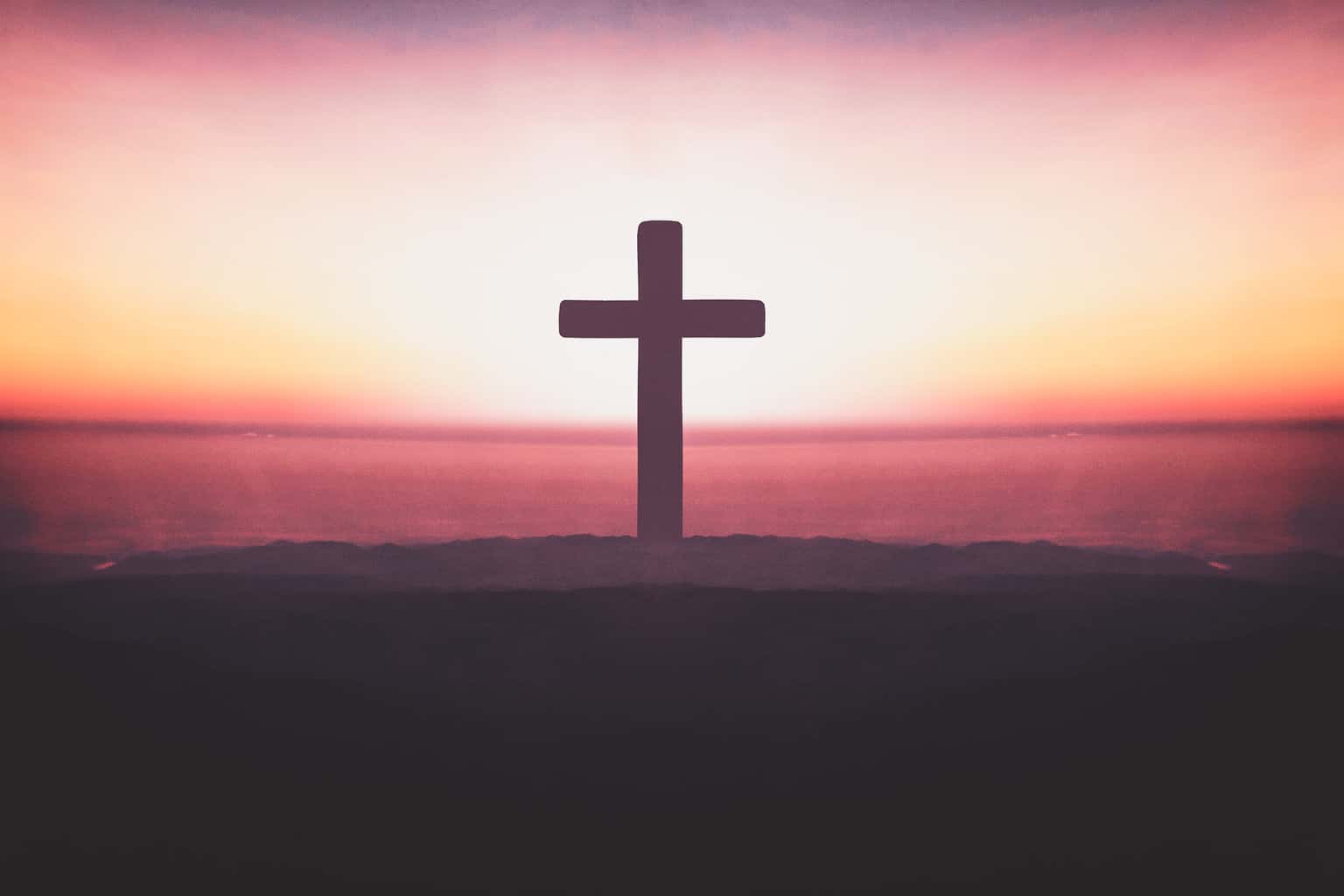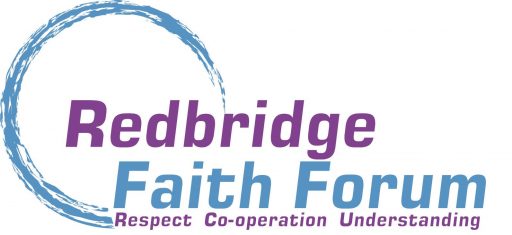Christian Festivals…

Christian Festivals...
by Rosemary Jackson, Redbridge Faith forum Member
The main festivals celebrated by Christians are Christmas, Easter and Pentecost.
These festivals are inextricably linked. Christmas is when we celebrate the birth of Jesus. Easter is when we remember His sacrificial death and His resurrection. Pentecost is when we rejoice that God sent His Holy Spirit, fulfilling Jesus’ promise to send his followers a helper after He had left the earth to ascend into heaven. In light of these three great events, every day is a celebration for Christians.
According to the Bible the only celebration we are instructed to follow is the Breaking of Bread; also known as Communion or the Lord’s Supper. When Jesus celebrated His final Passover meal with His disciples He said, ‘Do this in remembrance of me.’ The broken bread represents Jesus’ sacrificed body. The wine represents His blood shed in sacrifice. How Communion is celebrated, and how often, varies with different denominations and individual congregations.
Christians believe in one triune God, the Trinity; that is three in one, Father, Son and Holy Spirit. The Bible tells us that God came into the world in the form of a man, Jesus, to atone for the sins of all mankind. Those who accept Him as their Saviour have their sins forgiven and have an eternal future in heaven with God. Jesus lived a humble life, was sacrificed by dying a criminal’s death - crucified on a wooden cross - and rose again on the third day. 40 days later He ascended into heaven where He sits at the right hand of the Father. Soon after that, during the festival of Pentecost, God sent His Holy Spirit, to empower His followers, as Jesus had promised. Through the Holy Spirit God dwells in His people; Christians are the Temple of the Holy Spirit. We do not need to attend special buildings to be in His presence. The buildings we meet in vary hugely, from magnificent cathedrals to prison cells. The various denominations often have different styles of buildings. Some own their buildings whilst others rent rooms, halls or cinemas. Wherever we meet to worship God is church.
Jesus has many titles including: Lord, Saviour, Christ, Messiah, Emmanuel, The Word, Son of God, Son of Man, the King of the Jews, Son of David, Lamb of God and the Light of the World. His followers called Him Rabbi, and Master. …Sadly, today many only know His name as a swear word.
In the early years of Christianity Easter was the main holiday; the birth of Jesus was not celebrated. There is no biblical directive to celebrate Christmas, and no mention in the Gospels of the date of Jesus’ birth. It wasn't until the fourth century that church leaders in Rome instituted the celebration of ‘the nativity’, as it was then called.
Early church leaders blended Jesus' nativity celebration with pre-existing midwinter festivals. The dark days that culminated with the shortest day of the year - the winter solstice – were traditionally lightened with feasts and decorations.
This was a natural time for a feast. In an agricultural society the harvest work was done for the year, and there was nothing left to be done in the fields. Most cattle had been slaughtered so they would not have to be fed during the winter. For many, it was the only time of year when they had a supply of fresh meat. In addition, most wine and beer made during the year was finally fermented and ready for drinking.
The word "Christmas" was first recorded in 1038.
By the Middle Ages, Christianity had, for the most part, replaced pagan religion.
Christmas is celebrated on 25th December each year. Because Western churches use the Gregorian calendar and Eastern Churches use the Julian calendar, Greek and Russian orthodox churches celebrate Christmas 13 to 14 days later. The period leading up to Christmas is called Advent.
There is a long history of different practices in the celebration of Christmas among different groups of Christians over the centuries; its celebration even being banned at various times.
In the UK, Christmas Day became a bank holiday in 1834.
In 1843 Charles Dickens wrote A Christmas Carol which influenced many aspects of Christmas that are celebrated today in western culture, such as family gatherings, seasonal food and drink, dancing, games, and a festive generosity of spirit.
In the 19th century the Americans re-invented Christmas, changing it from a raucous carnival holiday into a family-centred day of peace and nostalgia. They built a Christmas tradition that included pieces of many other customs, including decorating trees, sending holiday cards and gift-giving.
The traditional colours of Christmas decorations are red, symbolising the blood of Jesus which was shed in his crucifixion; green, symbolising eternal life; and gold, one of the three gifts of the Magi, symbolising royalty.
Up until the 1950s in the UK, many Christmas customs were restricted to the upper classes and better-off families. The Christmas tree was rare. Christmas dinner might be beef or goose – certainly not turkey. In their stockings children might get an apple, an orange, and some sweets. The full celebration of a family Christmas with all the trimmings only became widespread with increased prosperity from the 1950s.
Many of the things associated with Christmas are pagan traditions (eg holly, mistletoe, Yule logs and Christmas puddings) steeped in superstitious folklore – they have nothing to do with biblical Christianity.
Father Christmas as a jolly old man with a white beard is thought to be based on St Nicholas, who can be traced back to Asia Minor in about 350 AD.
For Christians, attending a Christmas Eve or Christmas Day church service plays an important part in the celebration of the Christmas season. Church services vary across the different denominations, ranging from solemn meditative services to family style nativity services. Nativity plays, carol singing and Christmas concerts proclaim the birth of the Saviour of the world.
According to the gospels Jesus was born in Bethlehem to the Virgin Mary in accordance with Old Testament messianic prophecies. Mary became pregnant by the power of the Holy Spirit. Mary and Joseph travelled from Nazareth to Bethlehem for the census. When they arrived in the city the inn had no room, so they were offered a stable where the Christ Child was born and laid in a manger. Angels appeared to nearby shepherds proclaiming Him as Saviour for all people, and the shepherds then came to adore Him. These shepherds tended the sheep to be offered as Passover sacrifices in the Temple in Jerusalem. Angels feature numerous times in the Christmas story. The Angel Gabriel appeared to Mary to announce that she would give birth to the Messiah. An angel appeared to Joseph telling him what was going on, and to name the child Jesus. The Angel Gabriel also appeared to Zechariah the priest announcing his elderly wife, Elizabeth, would give birth to a son. He was John the Baptist, the cousin of Jesus. After the visit of the wise men an angel again visited Joseph and warned him to escape to Egypt.
The Epiphany is celebrated 12 days after Christmas. This remembers the visit of the Magi, who were wise men from the East (there is no mention of three kings). They followed a star to Bethlehem and came to bring gifts of gold (symbol of kingship), frankincense (symbol of deity) and myrrh (symbol of death) to Jesus, acknowledging Him as the King of the Jews. King Herod, fearful of a rival king, ordered the massacre of all the boys in Bethlehem less than two years old, but Jesus’ family fled to Egypt, later returning to Nazareth.
Easter celebrates the death and resurrection of Jesus, and is closely associated with the Jewish festival of Passover. Easter can be any time between March 22 and April 25. Eastern and Western churches continue to celebrate Easter according to different calendars. Good Friday commemorates the day Jesus was crucified. Easter Sunday is the celebration of His resurrection from the dead, gaining victory over sin and death.
Prior to this The Law required many sacrifices to be offered to God to atone for sin. Once a year the High Priest was allowed to enter into God’s presence in the Holy of Holies, the inner sanctuary of the Temple. This was to offer sacrifices on the annual Day of Atonement.
Jesus took the place of the sacrificial lamb that was offered on that special day, and He made a once-for-all atonement for the sins of all mankind, for those who choose to accept and follow Him. Jesus was betrayed by Judas, one of His disciples, and sold for 30 pieces of silver; the price of a slave.
Scripture tells us that at the moment Jesus died the curtain of the Temple was torn in two from top to bottom. Before this happened, no one was allowed to pass through that curtain into the inner sanctuary of the Temple (except the High Priest and then only on the annual Day of Atonement). The curtain had been a symbol that we are separated from God because of our sins. When the curtain was torn, it proved that the way to God is now open for everyone who trusts in the Lord Jesus. Jesus was the last High Priest who offered the ultimate sacrifice.
The earth shook, the rocks split and the tombs broke open. The bodies of many holy people who had died were raised to life. They came out of the tombs after Jesus’ resurrection and went into the holy city and appeared to many people.
When the centurion and those with him who were guarding Jesus saw the earthquake and all that had happened, they were terrified, and exclaimed, “Surely he was the Son of God!”
The tomb where Jesus’ body was laid was sealed and had a Roman guard.
On the third day there was a violent earthquake, for an angel of the Lord came down from heaven and, going to the tomb, rolled back the stone and sat on it. His appearance was like lightning, and His clothes were white as snow. The guards were so afraid of him that they shook and became like dead men. After the resurrection Jesus appeared to the apostles and over 500 other people. Without the resurrection Christianity is meaningless because Jesus would not have gained victory over sin and death.
The period leading up to Easter is called Lent.
Lent and Advent are observed in various ways depending on individuals and denominations. Both are times of preparation and anticipation of the forthcoming celebration. People may fast, reflect, pray or take part in activities related to the season. Much of it is done in private because Jesus said that it should not be obvious to others when we are fasting. These are not ‘must do’ activities but actions some Christians find helpful in preparing their hearts for the celebrations of Christmas and Easter.
As with Christmas there are many traditions, again many linked to pagan celebrations. Easter was typically a celebration of fertility, hence the Easter eggs. Churches are often decorated with flowers as a significant theme for Easter is rebirth. Countries all over the world celebrate the holiday differently.
Pentecost, or Whitsun, is celebrated on the Sunday 50 days after Easter. It is regarded as the birthday of the Christian church, and the start of the church sharing this wonderful good news with everyone. Pentecost is a Jewish holiday held 50 days after Passover. One of three major feasts during the Jewish year; it celebrated thanksgiving for harvested crops. However, Pentecost for Christians means something far different.
The apostles were celebrating the Jewish harvest festival of Shavuot when the Holy Spirit descended on them. It sounded like a very strong wind, and it looked like tongues of fire. The apostles then found themselves speaking in foreign languages, inspired by the Holy Spirit. Visitors to Jerusalem were amazed to hear the apostles speak in their own languages. The symbols of Pentecost are those of the Holy Spirit and include flames, wind, the breath of God and a dove.
The recent months of Covid-19 have been very difficult for the whole world. It has challenged us to reconsider everything we do and how we do it. For the Christian Church it has been both a testing and an encouraging time. Our traditional ways of meeting, celebrating and serving have all had to be reviewed. Some have discovered there are traditions and practises they can do without. We have had to think about and discuss what we do, why we do it, and where we go from here. The basics have not changed. We have a loving sovereign God who reigns from his throne in Heaven. Our salvation is secure. We know our sins are forgiven, that we are accepted as God’s children, and that after we die we will live with Him in heaven for eternity. Scripture tells us that Jesus has gone to prepare a place for us and He will come back for His church. God lives in the Temples of His followers, from where He serves the world. We continue to worship, and celebrate, wherever we are. Every day is a celebration!

